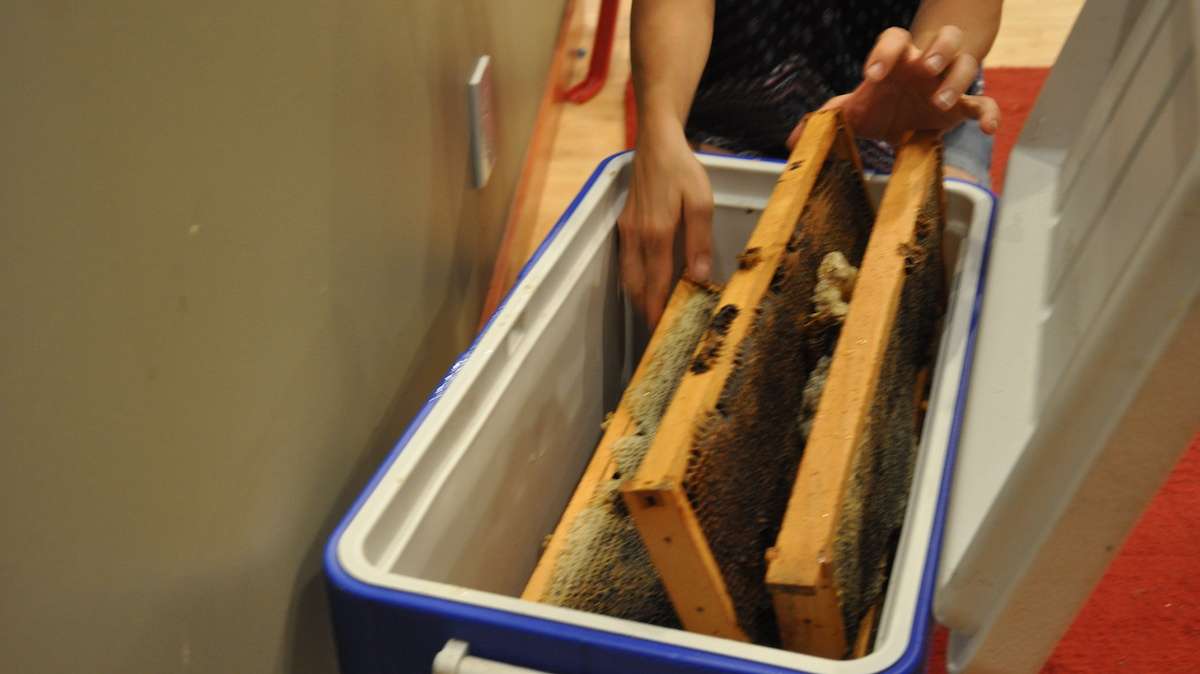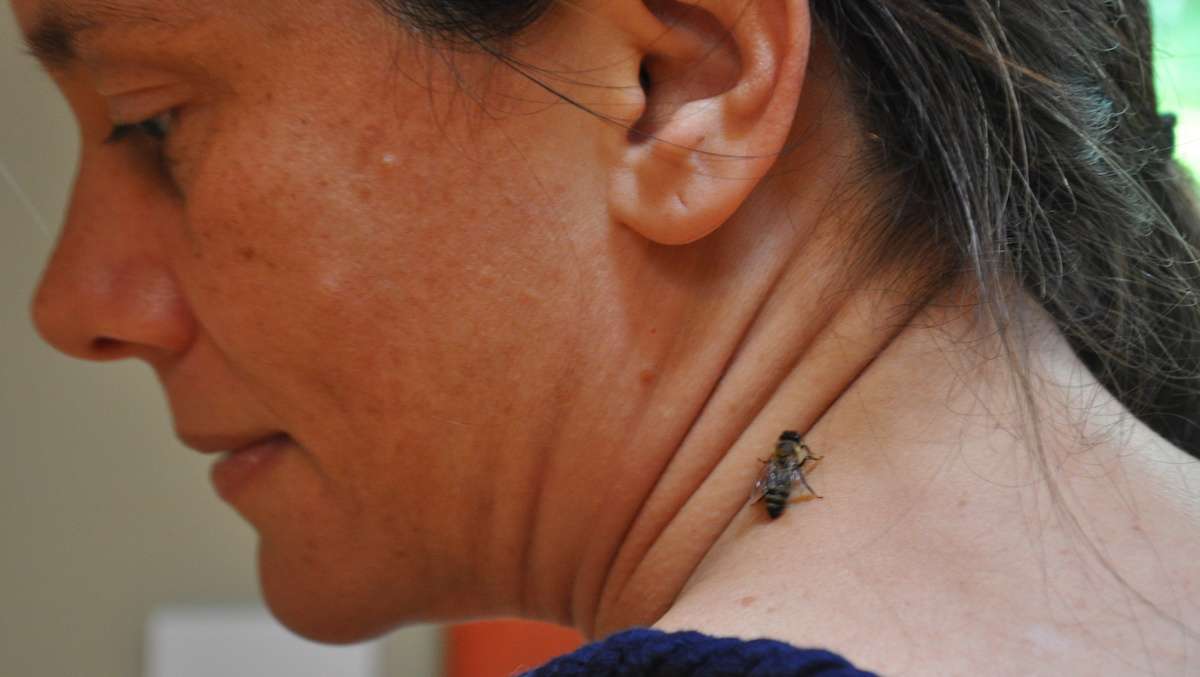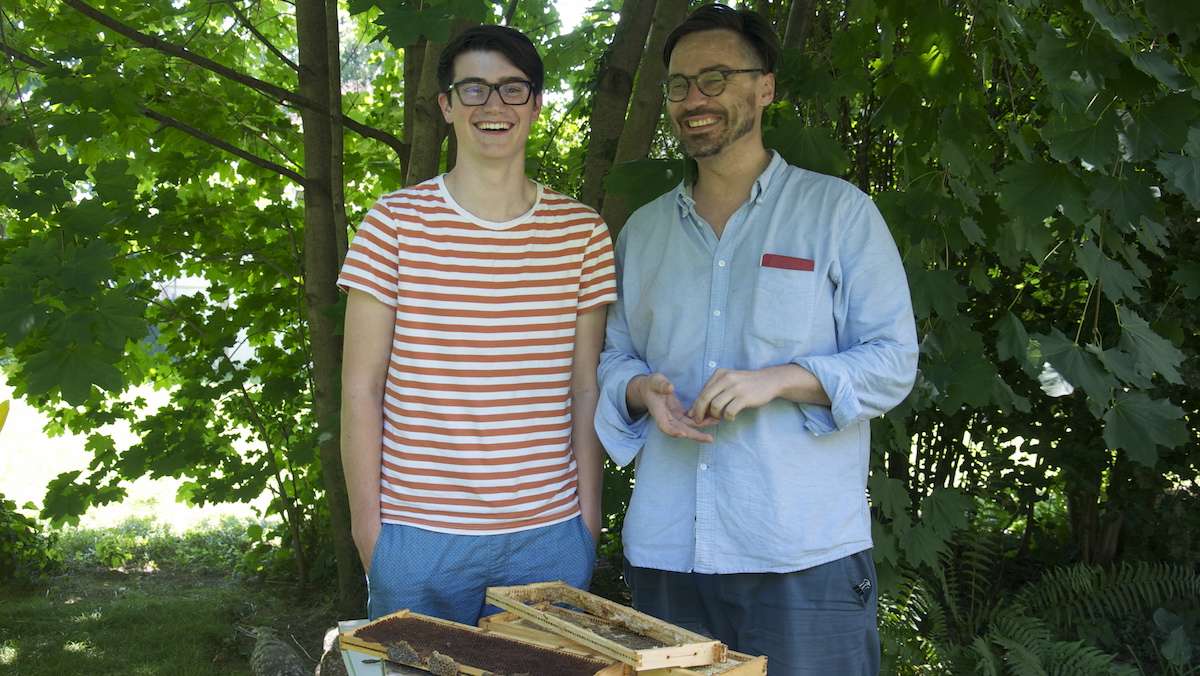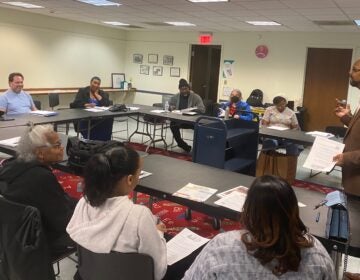Beekeepers in Northwest Philly look towards sustainability
It doesn’t take a farm to be a beekeeper. Hives are popping up around Philadelphia while beekeepers are forming their own groups to swap tips and normalize backyard beekeeping.
Tanya Veitch is a nurse in East Falls who has been keeping bees for several years. Now she owns Wicked Bee Hollow in East Falls. She found herself interested in beekeeping after seeing an exhibit about chicken farms and self-sustainable lifestyles. She now makes bath products and bottles her goods.
“They look kind of scary, but they’re full of honey and they’re very docile,” she said.
Identifying the right type of bee to hold is crucial, beekeeper and Manayunk resident Wynn Geary said.
Geary, who just graduated from Science Leadership Academy, and his business partner, Max Lawrence, have been working for months to develop a “smart hive” that tests the activity of bees and can, hopefully, explain some reasons behind colony collapse disorder.
Veitch teams up closely with Geary and Lawrence, who work out of Manayunk Farm. The beekeepers even swap hives occasionally — a technique called splits — which give nests a rest and allow other keepers to build on their own hives.
Lawrence has been working on how bees communicate with the waggle dance; a movement that allows bees to indicate different needs to each other.
“The important stuff is the agitation and collection of data… which is not really sexy,” Lawrence said.
Lawrence set up a slew of routers and wires leading into a life-stream of the bees productivity, allowing people to see what happens when a hive is undisturbed by humans draped in bee-repelling space-suit-looking beekeeping gear.
Colony collapse occurs when bees abandon their hives. Geary said climate change and pollution are chief among the reasons why bees flee their hives. He’s hoping learning more about bee communication will bring scientists closer to understanding why colonies collapse so easily.
And while the wooded and spacey parts of Philadelphia seem like the most obvious place to put a hive, it’s something that exists across the city, even in more densely-populated areas.
“There are techniques to keep them from swarming and there are techniques to keep them making honey,” Veitch said.
WHYY is your source for fact-based, in-depth journalism and information. As a nonprofit organization, we rely on financial support from readers like you. Please give today.















